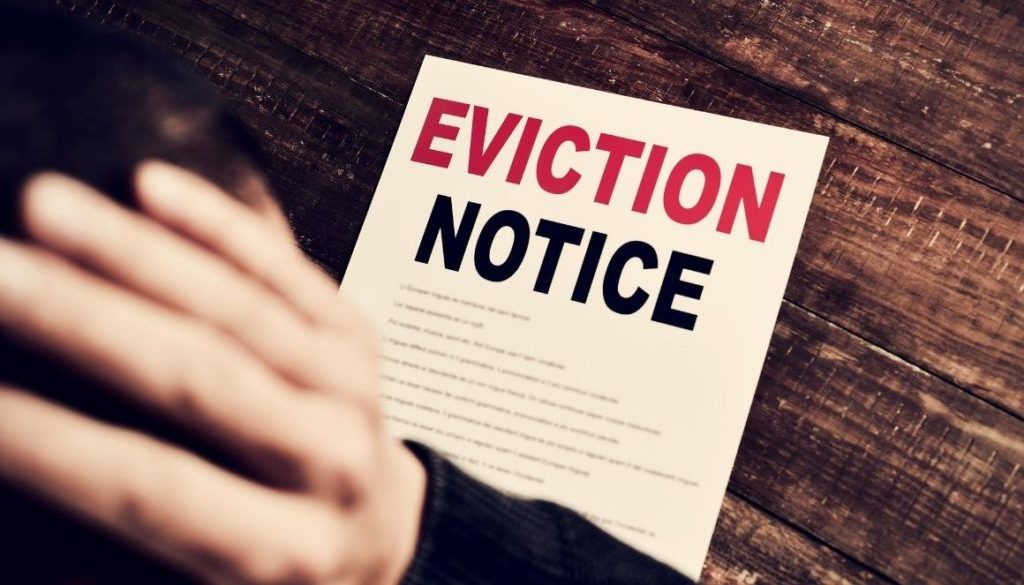How Property Managers Can Manage Their Reputations During The Eviction Crisis
On July 30, the $600 government unemployment checks that nearly 25 million American adults have been getting came to an end, possibly to be replaced by $200 checks. In addition to potentially reduced unemployment checks, the Federal Eviction Moratorium has also expired, leaving an estimated 12 million renters at risk of eviction.
As unemployment benefits shift and eviction notices begin to disburse, property managers are bound to take a lot of heat as liaisons between renters and landlords during this tumultuous time. Eviction can be an ugly, emotional process, and tenants caught in the crosshairs are not likely to keep their grievances to themselves.
Bad reviews, social media criticism, negative press or a public lawsuit can do permanent damage to a property manager’s reputation. However, with the right reputation management skills and tools, there are ways to mediate these situations and maintain a positive image.
Be Transparent
In the midst of the pandemic, it is crucial to be honest and upfront with tenants about property policies, lease obligations, what is still in effect and where they can expect leniency given the circumstances. Respectfully refer them to the lease they signed, and take the time to review what is expected of them on your end.
It is also important to maintain steady communication with renters. Make sure that you are acknowledging their current financial hardship and are not neglecting their concerns. It is a tough time for everyone, and they need to know that you do not want to evict them. Empathy and transparency go hand-in-hand in this circumstance, and your tenants must be able to see that.
Keep these exchanges well-documented and memorialized to record a clear and accurate timeline of communication. You may need to refer back to the records later to publicly correct false charges or misleading accounts.
Respond Quickly And Politely
It comes as no surprise that removing people from their homes will likely invoke a lot of emotions, causing many tenants to take their frustration out on the internet or social media. According to a survey by Binary Fountain, 93% of potential renters read between one and ten reviews before making a decision on their rental property.
With that said, it is important to be upfront and honest in your response to angry tenants. Respond to their review in a timely manner by acknowledging their “bad” experience, but also offer some explanation as to why the situation occurred. That way, prospective renters are able to see your professionalism and also see your point of view.
If a review is incredibly misleading or contains false information, it may be worth taking the issue offline, privately discussing the matter with the frustrated tenant and requesting that the fake review is removed. If matters are not solved, the situation may take a legal turn, and a lawyer may have to get involved.
Combat Negative Press
Obviously, as eviction cases rise across the country, property managers will take a beating in local news segments and articles. The media will not hold back, and these brands will be called out by name.
Most news stations/papers will call you for comment before running the story. Make sure you have a spokesperson in place and messaging on point to respond to the situation appropriately. If you fail to tell your side, you risk a one-sided account going public with false charges that you could have squashed, had you talked to the reporter. In some instances, you can kill the story altogether by providing evidence that the complainant’s story is false or greatly exaggerated.
The longer negative information remains in the media without your brand’s comment, the more the public accepts it as true. It is crucial to get in front of the bad publicity as soon as possible so you have the chance to frame the issue and highlight facts that a tenant or reporter might ignore.
Monitor Your Platforms Moving Forward
While the goal is always to respond to frustrations in a timely manner, it is hard to keep track of every platform that a tenant may leave a review on. With that being said, turning on Google Alerts that will notify you whenever new content is published online containing specific keywords that you choose.
Closely monitoring your personal or company social media accounts can also be beneficial. Turn on your notifications to stay on top of comments and mentions that are left on your page, so that you can respond and mediate the situation as quickly as possible.
In order to combat bad reviews, social media criticism, negative press or potential public lawsuits as a property manager, do some research on public relations agencies or consultants who are properly educated to mitigate these issues.
Dylan Manderbach is a public relations associate at Flackable, a national, full-service public relations agency headquartered in Philadelphia. To learn more about Flackable, please visit www.mariaa191.sg-host.com.




